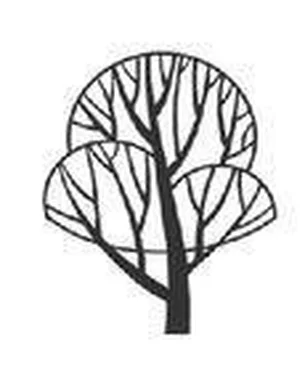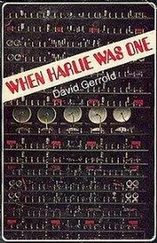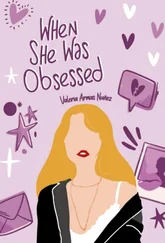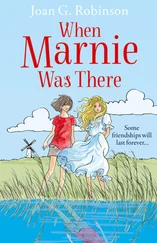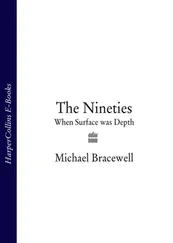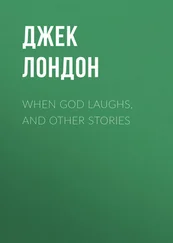Winman, Sarah - When God Was a Rabbit
Здесь есть возможность читать онлайн «Winman, Sarah - When God Was a Rabbit» весь текст электронной книги совершенно бесплатно (целиком полную версию без сокращений). В некоторых случаях можно слушать аудио, скачать через торрент в формате fb2 и присутствует краткое содержание. Жанр: Старинная литература, на английском языке. Описание произведения, (предисловие) а так же отзывы посетителей доступны на портале библиотеки ЛибКат.
- Название:When God Was a Rabbit
- Автор:
- Жанр:
- Год:неизвестен
- ISBN:нет данных
- Рейтинг книги:4 / 5. Голосов: 1
-
Избранное:Добавить в избранное
- Отзывы:
-
Ваша оценка:
- 80
- 1
- 2
- 3
- 4
- 5
When God Was a Rabbit: краткое содержание, описание и аннотация
Предлагаем к чтению аннотацию, описание, краткое содержание или предисловие (зависит от того, что написал сам автор книги «When God Was a Rabbit»). Если вы не нашли необходимую информацию о книге — напишите в комментариях, мы постараемся отыскать её.
When God Was a Rabbit — читать онлайн бесплатно полную книгу (весь текст) целиком
Ниже представлен текст книги, разбитый по страницам. Система сохранения места последней прочитанной страницы, позволяет с удобством читать онлайн бесплатно книгу «When God Was a Rabbit», без необходимости каждый раз заново искать на чём Вы остановились. Поставьте закладку, и сможете в любой момент перейти на страницу, на которой закончили чтение.
Интервал:
Закладка:
‘Go to her,’ said god.
‘Why?’ she asked, pulling the towel away from her face. The clock ticked loudly in the silence. She stared pitifully across the kitchen table, and I longed for my brother to reappear, to bring back the recognisable into this scene of disquiet. My chair felt hard. The orange squash, too sweet. Our ease, now awkward. Nothing was the same.
‘Why?’ she asked again, tears instantly appearing in her eyes. ‘Why? Why? Why? Why? Why?’
I couldn’t answer her.
‘Is it me?’
I felt my throat clench.
‘Of course not,’ I said. ‘My mum and dad said we have to.’
‘Where are you going?’ she said, gripping the rabbit so tightly, he started to struggle.
‘Cornwall.’
‘You may as well be dead,’ she said, and let god fall to the floor.
‘Fuck,’ he said, and scuttled under a box.
She slumped forwards, rested her elbows on her knees.
‘What about Atlantis?’ she said. ‘And all the things we were going to do?’
‘It could be in Cornwall,’ I said. ‘Maybe we’ll find it there.’
‘It can’t be in Cornwall,’ she said.
‘Why not?’
‘Because it can’t. It has to be a place that’s ours . Can’t you see that? Not something that’s everyone else’s,’ and she began to stamp her feet as rage overtook her, a rage my brother had so often felt when playing with her. It was an excess energy born of the dangerous, an energy that could unexpectedly turn play into war.
‘Don’t leave me, Elly,’ she pleaded. ‘Please don’t,’ she said again. ‘You don’t know what’ll happen.’
But what could I say? I reached out my hand. The gesture crass and dramatic.
‘I really love you,’ I said clumsily.
Pathetic.
‘No you don’t!’ she shouted. ‘You’re just like everyone else,’ and she got up and ran.
I followed her to the back fence, shouting her name, begging her to stop, pleading, but she never did. The shutter had come down. She would live behind it until I left.
We never did ask to see photographs, never did enquire about the village or the life we were to lead, not even about the schools we were to go to; instead we trusted our parents just like they’d asked us to, and allowed them to lead us blindly to an unknown place with an unknown future. I stood in the doorway of my room and looked around, feeling sad but strangely detached; I filled my favourite bag with Orinoco, my Womble, my hair brush and photographs, and my box of knick-knacks of very little worth but of surprising memory. I added my swimming costume and sunglasses, but not my flip-flops, intending to buy new ones in a shop by the sea. I realised I was happy to let the rest of it go. That at the age of nine years and eight months a child should welcome the chance to start again didn’t seem particularly unusual at the time. I sat down on my bed with a beach towel wrapped around my shoulders. I was packed and ready to leave; only twelve days and three hours early. I closed my eyes and heard the call of seagulls.
The moving company did everything, packing our life away with the professionalism of minimal fuss. I looked inside the van just before they pulled the rolling doors down and thought we hadn’t acquired much over the years; our belongings were scant and functional, almost forlorn. There was no piano to manoeuvre; no paintings to grace walls or heavy textured rugs to add warmth to slate floors, so cold and harsh on bare feet. There were no standing lamps that would soon cast shadows in corners like stowaways, or large wooden Victorian trunks that would house linen and sachets of lavender, and would work hard to keep out the damp over the winter months. No, these things were not ours yet; they would grace our life to come.
‘Five minutes, Elly,’ my father said, as he broke away from handshakes and well-wishers, and the teasing that accompanied their goodbyes. I placed god in his box on the back seat, and before I covered him with a blanket he looked up and said, ‘Leave something here. You must leave something here, Elly.’
‘But what?’ I said.
‘Something.’
I grabbed my brother and we ran back through the empty house, our steps loud and intrusive on the naked boards. I stopped and looked around. How easy not to exist any more. To just go and leave this ; this that was my home.
‘Come on,’ shouted my brother, and I ran after him.
He closed the lid on the small red biscuit tin and buried it under the slatted back fence shaded by the wall. He covered it with extra bricks, a sprinkling of camouflage dirt and leaves.
‘Do you think someone will find it one day?’
‘Nah, never,’ he said. ‘Not unless they know where to look . . . What did you put in?’ he asked.
‘Photo,’ I said. ‘You?’
‘A secret,’ he said.
‘That’s not fair.’
‘No,’ he said, and looked at me strangely. I thought he might tickle me, or hit me even, but he didn’t. He reached out and cuddled me and it felt weird. As if he was saying goodbye to me as well.
I never expected her to come and see me off – I’d tucked that hope away somewhere in the back between the towels and old linen – but when I heard the unmistakable sound of her unruly run, my heart leapt; and as she voiced my name – a shout verging on a scream – I ran towards her flaying arms.
‘Sorry I’m late,’ said Jenny Penny, breathing hard. ‘It was my hair.’
We stood quietly looking at each other, frightened of speaking in case our words might wound.
‘I’ve got new shoes,’ she said finally in between quiet sobs.
‘They’re so nice,’ I said, and I held her hand. They were red with small white daisies positioned on the toe, and I really liked them; they were the best shoes I’d ever seen her wear and I told her so.
‘I wore them specially to show you,’ she said.
‘I know you did. Thanks,’ I said, suddenly feeling wretched.
‘I don’t think we’ll ever see each other again,’ she said, looking up at me, her face red and blotchy from her tears.
‘Of course we will,’ I said, putting my arms around her and smelling the familiar scent of chips in her hair. ‘We’re linked,’ I said. ‘ Inextricably linked.’ (Something my brother had said about us the night before.)
And I was right. We would see each other again, but only the once – as children, anyway – before our lives diverged like rivers separating and carving across new terrain. But I didn’t know that as I waved to her from the car and shouted, ‘See you soon, I’ll miss you!’ I didn’t know that as I shouted, ‘You’re my best friend! Write to me!’ I knew none of that as I looked back and watched her and our street recede like the point of light in a tunnel, until the moment we turned the corner and she and it were gone. I felt the air sucked out of my lungs like life itself.

Trees surrounded us as we turned off the main road and left the holiday traffic to chug along in Bank Holiday formation. We followed the single-lane track down towards the river, veering sharply left then right, following raggedy signs that said Trehaven .
The late afternoon sun hadn’t lost its heat, and leaves from overhanging branches were dappled by its fractured intensity and flickered like broken mirrors onto my face. I breathed in this new air; it was damp; warm damp, and now and then I thought I could smell the sea, and could actually, because the tidal waters that fed the small river below were on the turn.
‘We’re nearly there,’ I whispered to my brother as I leant back into the car, and for the first time during the six-hour journey, he sat up, interested. He started to bite his nails.
Читать дальшеИнтервал:
Закладка:
Похожие книги на «When God Was a Rabbit»
Представляем Вашему вниманию похожие книги на «When God Was a Rabbit» списком для выбора. Мы отобрали схожую по названию и смыслу литературу в надежде предоставить читателям больше вариантов отыскать новые, интересные, ещё непрочитанные произведения.
Обсуждение, отзывы о книге «When God Was a Rabbit» и просто собственные мнения читателей. Оставьте ваши комментарии, напишите, что Вы думаете о произведении, его смысле или главных героях. Укажите что конкретно понравилось, а что нет, и почему Вы так считаете.
